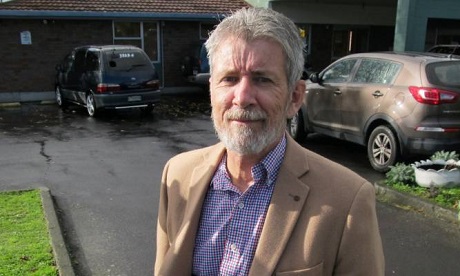Support for struggling families, our homeless whanau and those living in poverty has not been up to the task for decades says Bernie Smith, CEO of Auckland’s Catholic Monte Cecilia Housing Trust.
He is adamant.
We might want to blame COVID and the war in Ukraine for our economic woes, he says. But everyone (except successive Governments) knows Government support for those in most need is not up to the task.
“When you look at the rate that living costs have climbed compared to support, struggling families are now far worse off as living costs continue to spiral out of control.”
Tellingly, the NZ wait register for social housing has climbed to over 30,000 this year. Four years ago it was 5,500, he says.
The Budget hasn’t addressed the problem either.
Yes, there’s $27 a week (to a total of $350) for people earning less than $70,000 per year. But – that boost isn’t for people on Winter Energy Payments. They’re excluded.
That means people on core benefits who need that help the most won’t qualify, Smith says.
Meantime, they’re stressing about how they are going to put food on the table and get warm clothes and blankets to stop their children from catching the winter flu.
Research shows while household entitlements have increased in recent years, recipients continue to play catch up.
The reason: entitlements are never indexed against the cost of living increases.
Over the years their worth erodes, driving families deeper into an endless cycle of poverty and housing insecurity.
To illustrate his point, Smith says when the Social Security Act 1938 was passed, it offered ten income support benefits to give every New Zealander the right to a reasonable standard of living.
The Government firmly believed it was everyone’s responsibility to ensure all New Zealanders were safeguarded from poverty and circumstances beyond their control.
“The Act removed the Government’s classification of people as ‘worthy’ or ‘unworthy poor’, but people still think strongly about those on the benefit in a negative way,” Smith says.
People who are forced into poverty through injury, illness or acts outside their control are not criticised for accessing welfare.
But long-term welfare beneficiaries often are – you will receive a mixed response varying from encouragement to insult, Smith says.
“Sadly, our country values some individuals more than others. We clearly, more often than not, value those who are in employment more than those who are not employed.”
But every New Zealander, regardless of their employment status or income, is a valuable member of our community, Smith says.
So why do we disrespect tens of thousands of them by taking away their dignity and creating in them a sense of shame and hopelessness?
“We should be trying to identify a bright, dignified future of self-sustainability, where they can feel a sense of pride and a place in our communities, where every man, woman and child not only feels welcome, but is offered a long-term dry, warm, secure and affordable home with a liveable household income.”
Source
- Supplied Monte Cecilia Trust
